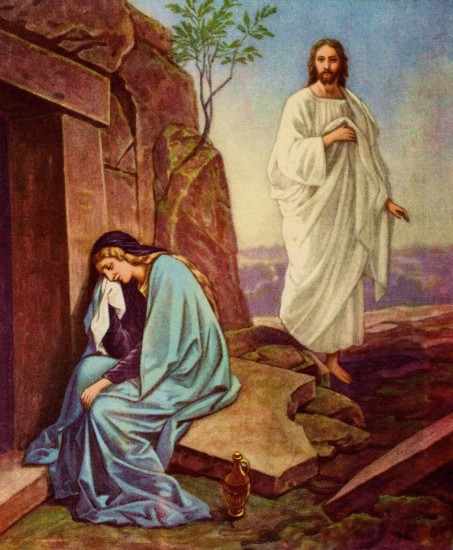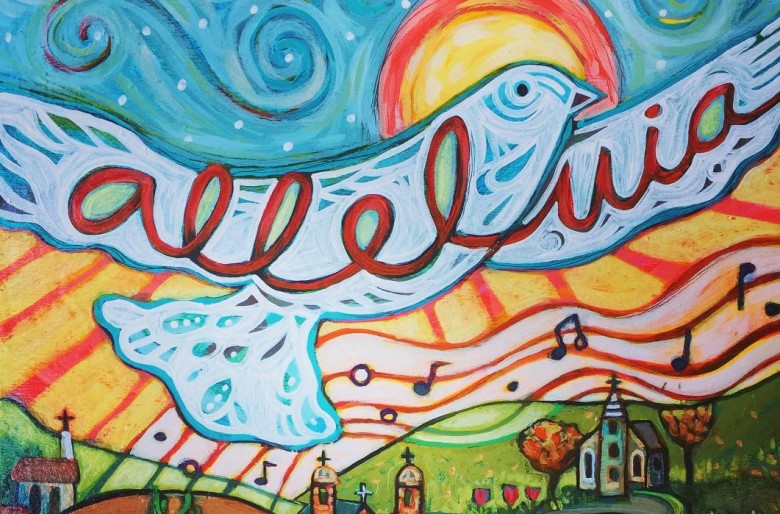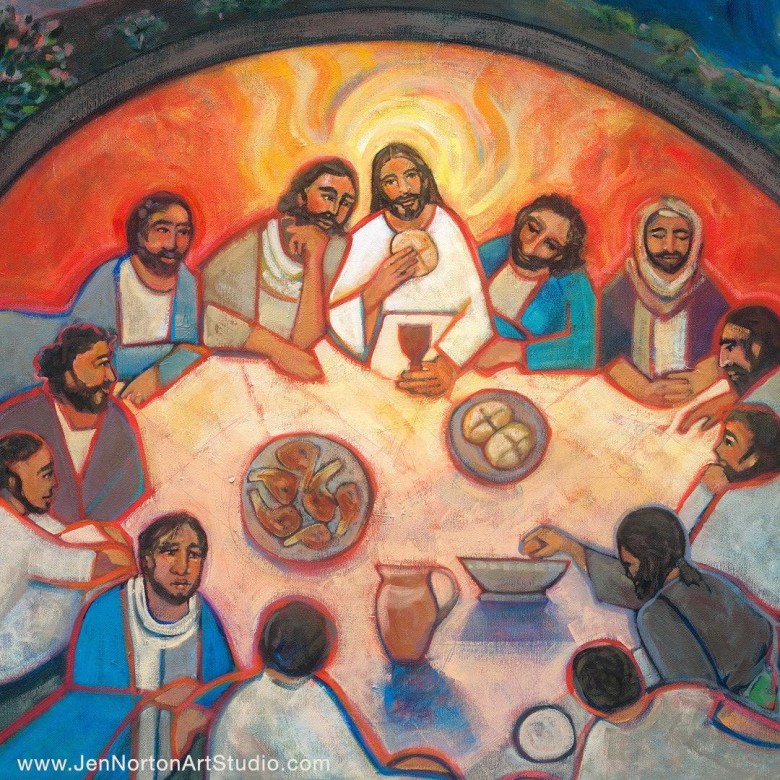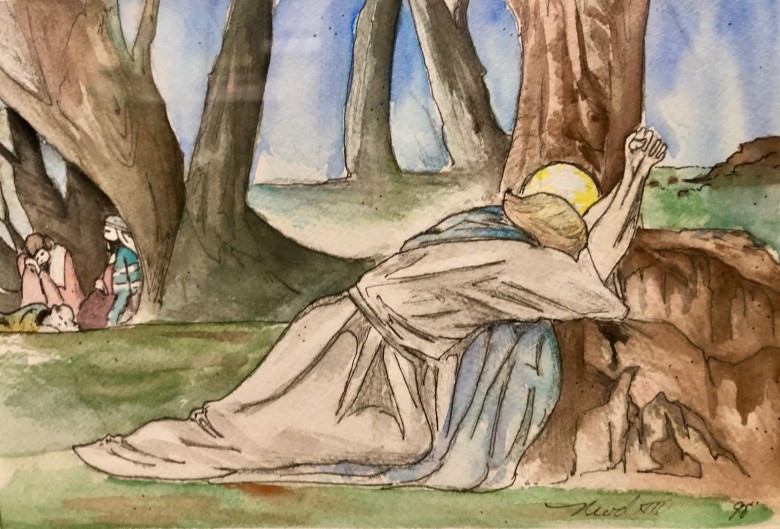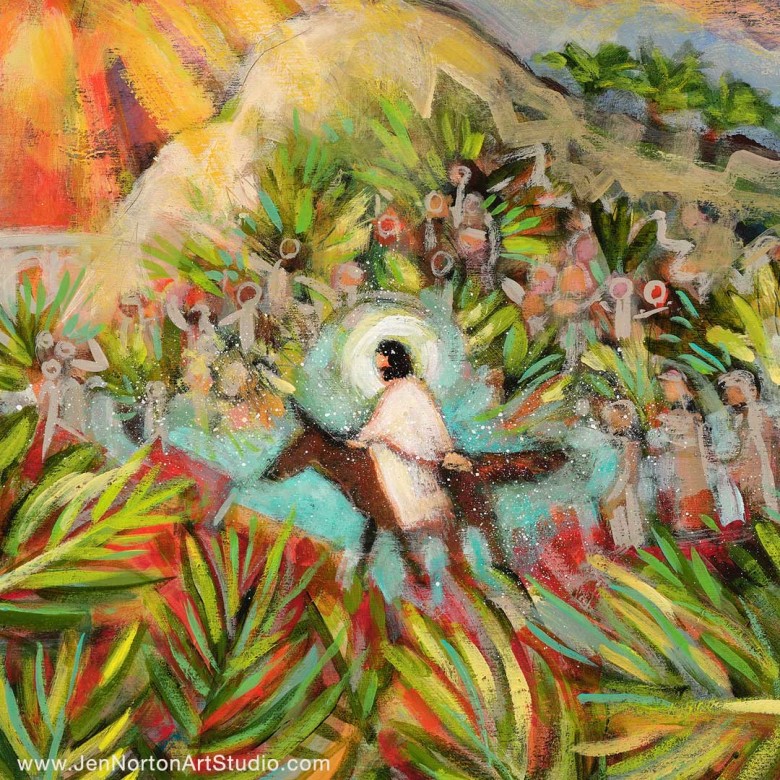Having hope in a time of crisis is not easy. Hope is rooted in truth, and the truth is, things are not easy right now.
Let’s be clear: having hope is not foolish optimism detached from the reality at hand. Rather, it has to do with trusting in the promises of God… which is hard… which is why it’s called a virtue (and not a given).
Hope—trusting in the promises of God—is intertwined in trusting in God’s goodness. On Friday, Pope Francis spoke about this very dynamic in his meditation on the calming of the storm from Mark 4:35-41 (full text and video here). Caught in a violent storm, the disciples, who are experienced, life-long fishermen, fear for their lives while Jesus is lays sleeping.
They woke him and said to him, “Teacher, do you not care that we are perishing?” He woke up, rebuked the wind, and said to the sea, “Quiet! Be still!” The wind ceased and there was great calm. Then he asked them, “Why are you afraid? Have you no faith?”(Mark 4:38-40)
Pope Francis honed in on the spiritual struggle so many of us have in the midst of a storm like Coronavirus and quarantine: “Like the disciples in the Gospel we were caught off guard by an unexpected, turbulent storm.” Like the disciples, our faith in God is evident in the way we call out to God. However, in the midst of a storm so violent that people fear for their lives, sometimes we question God’s goodness. We cannot understand it and question if God cares about us. Fear threatens our trust in God’s goodness.
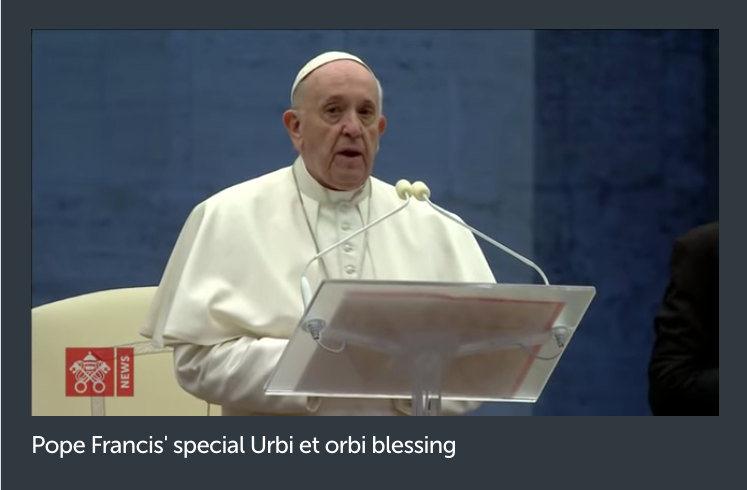
Trusting in God’s goodness opens our hearts to hope. In a time of crisis and fear, we need to remind ourselves and each other that there is abundant evidence of God’s goodness at work.
“How many people every day are exercising patience and offering hope, taking care to sow not panic but a shared responsibility. How many fathers, mothers, grandparents and teachers are showing our children, in small everyday gestures, how to face up to and navigate a crisis by adjusting their routines, lifting their gaze and fostering prayer. How many are praying, offering and interceding for the good of all. Prayer and quiet service: these are our victorious weapons.” (Pope Francis, Urbi et orbi blessing, March 27, 2020)
In the language of faith, this is the Paschal Mystery – God works with us, in us, and through us as vessels of grace to one another. Even in the midst of chaos and crisis, we can see goodness.
In the language of Mr. Roger’s Mom, “Look for the helpers.”
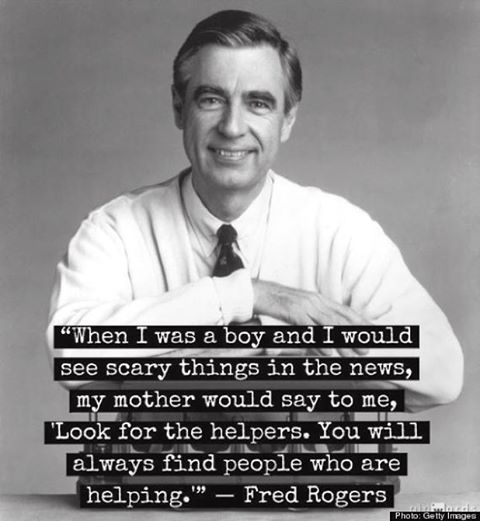
Name and claim the goodness and joy that you observe. Know that God is the source of all goodness. Believe that the Holy Spirit empowers us to be vessels of grace,
Recall the insight from the Raising of Lazarus: we have faith not in a God who rescues us; we have faith in a God who Redeems. We have faith in a God who is the source of all goodness; who respects our freedom enough to let things unfold… even difficult, painful, stressful things. Because our God Redeems.
God doesn’t do evil to achieve good (or to teach lessons). God doesn’t intend, rejoice in, or plan for suffering. God redeems it.
And we have faith in a God who Redeems.
Cultivating Hope
Trusting in a God who Redeems is at the root of the virtue of hope, and like all virtues, we can strengthen and grow in hope with practice.
Here one practice that we have been doing in our family to cultivate hope:
The Rose: Every night, when we gather for family dinner, we pray “The Rose,” which is a family-friendly, loose adaptation of St. Ignatius Loyola’s Examen. I have always appreciated the way the Rose allows us to hear about aspects of each other’s day that we otherwise wouldn’t.
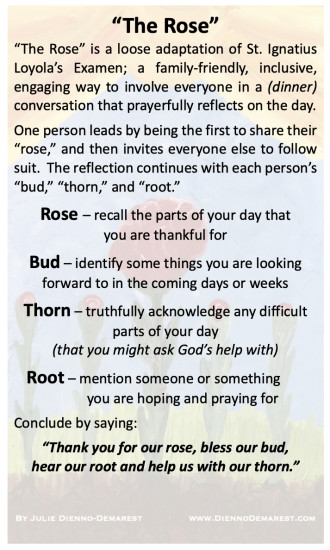 (Note: if you cannot see the image above, and/or if you would like a printable copy of The Rose, click here.)
(Note: if you cannot see the image above, and/or if you would like a printable copy of The Rose, click here.)
- Rose: Naming the bits of laughter and joy, the successes (no matter how small), the connections… Naming goodness and grace is essential to the spiritual practice of gratitude. Do it every night while eating dinner. Share your gratitude for goodness with one another.
- Bud: For my boys, anticipation of joyful experiences is just as (if not more) exciting than the experience itself. Naming our buds lifts our spirits. However. In the time of Covid-19, when all the things we usually look forward to have been cancelled, it’s becoming more and more difficult to identify things to look forward to. Which is why it’s becoming more and more crucial to our spiritual well-bring. Yes, most of our “buds” have looking forward to upcoming Zoom calls with friends… and getting to the other side of the Coronavirus! This is going to take some effort, but it’s also key to cultivating hope!
- Thorn: As I wrote in How Are You, it’s also important to be real about the struggles in your day. Articulating your thorn is prayer when that lament is directed to God, trusting in His goodness. Need some guidance there? Check out the Psalms.
- Root: As a family, we join together in specifically praying for people by name… and praying for an end to this pandemic.
What are you doing to cultivate hope today?
If you enjoyed this post, Please Share
